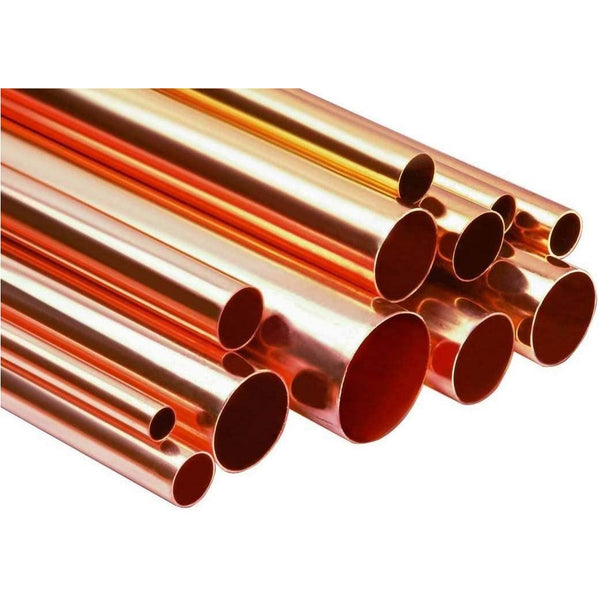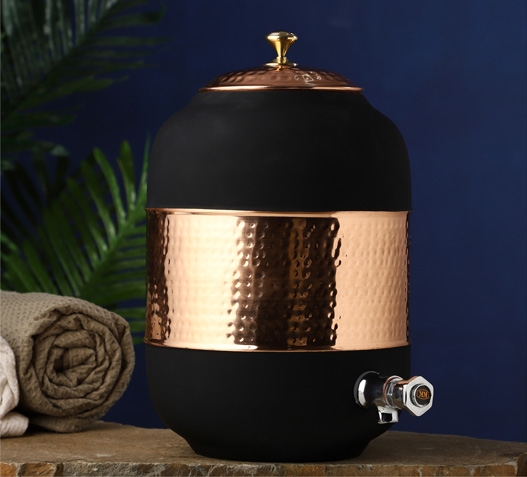Discovering the Diverse Applications of Copper Products in Modern Industries
Copper items have actually developed themselves as essential elements throughout a myriad of modern-day sectors, largely due to their amazing conductivity, pliability, and resistance to rust. From boosting the effectiveness of electrical systems to playing a vital function in renewable power technologies, the flexibility of copper is obvious. Additionally, its recyclability settings it as a sustainable option in production and electronic devices. As sectors progressively prioritize innovation and sustainability, the diverse applications of copper warrant a closer assessment, specifically concerning their prospective influence on future environmental methods and technical advancements.
Electric Applications of Copper
Copper is a vital material in the electrical market, making up around 60% of the complete demand for non-ferrous metals around the world - Copper Products. Its superior electric conductivity, which is almost twice that of light weight aluminum, makes it the recommended selection for a wide variety of electric applications. From wiring systems in household and commercial structures to high-voltage power transmission lines, copper makes sure effectiveness and reliability in electricity distribution
Along with wiring, copper is important to the manufacturing of electrical components such as generators, transformers, and motors. These parts take advantage of copper's thermal conductivity and malleability, essential for heat dissipation and efficient efficiency. Copper's resistance to deterioration improves the life expectancy and longevity of electrical systems, making it an affordable option in the long term.
The development of renewable power sources, such as solar and wind power, has better enhanced the need for copper in electrical applications. As industries transition towards lasting power remedies, copper's function becomes a lot more crucial. In general, the versatility and efficiency attributes of copper solidify its standing as a cornerstone material within the electrical field, driving advancement and effectiveness across various applications.
Pipes and Piping Solutions
In contemporary pipes systems, the option of products dramatically influences both capability and long life. Copper has emerged as a preferred option because of its unique homes, consisting of corrosion resistance and antimicrobial features. These characteristics make certain that copper piping remains safe and durable for carrying potable water, a crucial consideration in domestic and industrial applications.
One of the essential benefits of copper in pipes is its capacity to withstand heats and pressures, making it suitable for a selection of applications, from warm water systems to heating and cooling down networks. In addition, copper's versatility permits easier installation in complex piping layouts, reducing the danger of failings and leakages.
Another noteworthy advantage is copper's lengthy life-span, typically going beyond half a century with proper maintenance. This longevity not only decreases substitute expenses however likewise adds to lasting techniques by lowering waste. Furthermore, copper's recyclability aligns with contemporary environmental criteria, advertising a circular economic climate within the pipes market.
Copper in Renewable Energy
The adaptability of copper expands past plumbing applications, playing an essential role in the sustainable power sector. In solar panels, copper is made use of in photovoltaic or pv cells and wiring, facilitating effective energy conversion and transmission.

Furthermore, as the worldwide need for electrical cars (EVs) rises, copper's role in battery systems and charging facilities ends up being much more significant. The material's ability to perform electricity efficiently is important to the efficiency of EV batteries, boosting range and charging speed.
Copper's Function in Electronic devices
Electronic devices manufacturing counts heavily on copper's outstanding homes, particularly its high electric conductivity and thermal effectiveness. These features make copper an excellent selection for a variety of electronic elements, including ports, circuit boards, and wiring. The metal's capacity to successfully send electric signals guarantees very little energy loss, which is essential in high-performance digital tools.
Additionally, copper's thermal conductivity plays a significant role in warmth dissipation, protecting delicate elements from overheating. This is particularly essential in contemporary electronics, where portable designs bring about enhanced warm generation. Copper is his explanation additionally favored for its pliability and ductility, allowing it to be quickly formed right into complex layouts that satisfy the demands of innovative electronic applications.
With the rise of consumer electronics, telecoms, and electrical vehicles, the demand for copper in the electronics field proceeds to expand. As technologies in innovation evolve, copper continues to be important to attaining greater efficiency and integrity in digital products. Its recyclability better enhances its appeal, as suppliers seek lasting remedies without endangering high quality. Therefore, copper continues to be a cornerstone product in the ever-expanding area of electronics.
Cutting-edge Utilizes in Production

One noteworthy application is in additive manufacturing, where copper-based products are used in 3D printing procedures. This permits the development of complex geometries and lightweight components, specifically in the aerospace and auto fields. Additionally, copper's thermal conductivity makes it a suitable selection for warm exchangers, improving performance in commercial air conditioning systems.
Moreover, the surge of clever manufacturing has seen the consolidation of copper in IoT gadgets, where its conductive capacities support sophisticated sensing modern technologies. In the realm of renewable energy, copper is pivotal in the manufacturing of solar panels and wind turbines, helping with extra reliable power conversion and distribution.
As markets pursue sustainability and innovation, copper's adaptability and efficiency proceed to place it as a vital material, driving developments in production and adding to the development of smarter, a lot more reliable products.
Conclusion
In recap, copper products demonstrate impressive versatility throughout numerous modern-day sectors. Copper Products. Their premium conductivity improves electric applications, while corrosion resistance guarantees reliability in plumbing. The essential function of copper in sustainable energy and its essential function in electronics underscore its like this relevance beforehand sustainable methods. Furthermore, innovative uses in manufacturing emphasize copper's versatility and enduring significance. Jointly, these applications highlight copper's vital payment to technological progress and commercial efficiency in modern culture.
From improving the performance of electrical systems to playing a vital duty in renewable energy innovations, the versatility of copper is evident. As industries significantly prioritize advancement and sustainability, the varied applications of copper warrant a closer evaluation, particularly concerning their possible effect on future technological innovations and ecological techniques.
The development of renewable power resources, such as solar and wind power, has actually better enhanced the need for copper in electric applications. Generally, the convenience and efficiency attributes of copper strengthen its standing as a cornerstone material within the best site electrical field, driving development and efficiency throughout numerous applications.
The adaptability of copper expands beyond plumbing applications, playing an essential role in the eco-friendly energy field.